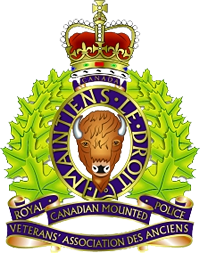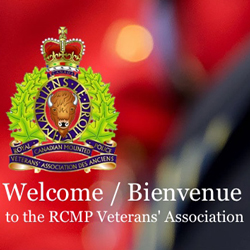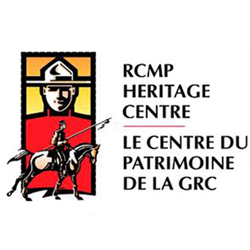N.B. Mountie Honoured For Epic March West In 1873

RCMP Veterans’ Association
Veterans Helping Veterans and Their Families
This information is being provided to all Association Members
New Brunswick NWMP Member Honoured for March West in 1873
Dear Association Members,
Executive Officer Mike Cote has provided an article that appeared in the 2019-11-06 issue of the newspaper, The Daily Gleaner out of Fredericton, New Brunswick reporting on the work of New Brunswick Division in providing a new grave marker for John A Lindsay, one of the 300 NWMP members on the March West.
The article follows – our sincere congratulations to New Brunswick Division in undertaking and completing this work.
James Forrest
Director of Communications
RCMP Veterans’ Association
Published | Publié: 2019-11-06
Received | Reçu: 2019-11-06 12:41 (EST)
Fredericton Daily Gleaner | NEWS | A3
N.B. Mountie Honoured For Epic March West In 1873
Mark Rickard Bugle Observer
A Woodstock man who was one of the original 300 North West Mounted Police members, on the historic March West in 1874, has been remembered by the RCMP Veterans Association with a new grave marker.
“John Lindsay of the North West Mounted Police served Canada proudly and honourably, beginning in 1873. John Lindsay was one of the 300 men on the March West,” said Joe Healey, a retired veterans’association member. “It has always been a part of the RCMP responsibilities and it’s members to look after our deceased.”
John A. Lindsay’s grave in Woodstock’s Methodist Cemetery has a new footstone noting his service as a sub-constable in theNorthwest Mounted Police from 1873 to 1879.
After six years service in the NWMP, Lindsay returned to Woodstock and became mayor in 1904. He died in Woodstock in 1931 at age 81.
The March West, between July 8 and Oct. 9, 1874 saw 300 men deployed across the prairie provinces in response to the Cypress Hills Massacre, in presentday Saskatchewan, and fears of a United States military intervention. The march has been portrayed as an epic journey of courage and endurance.
Keith Morris, vice-president of the New Brunswick RCMP veterans’association, said early officers encountered many hardships, and trials.
“The government of the day wanted to end the whiskey trade on the southern prairies and violence that came with it,” Morris.said. “The applicants had to be male between the ages of 18 and 40, of sound constitution, able to read and write in either English or French, and able to ride a horse. Pay was 75 cents a day for sub-constables and $1 a day for constables.”
Morris said the period of history was very important to the Mounties.
“The work done by these members set the high standard of expectations from the RCMP today,” Morris said.
According to the RCMP website, the new Canadian government created the force of mounted police to watch the western frontier and bring local government to these areas. When 30 members of the Assiniboine First Nation were killed in the Cypress Hills Massacre in 1873, and reports of whiskey traders at Fort Whoop-Up highlighted the lawlessness on the illegal trade, Canada recruited more officers.
In the West, the NWMP members faced numerous challenges, but the force set up bases at forts in Alberta and Saskatchewan.
By 1885, the force had grown to 1,000 men. King Edward VII conferred the title of “Royal” upon the North-West Mounted Police in 1904. On Feb. 1, 1920, the Force’s name became the Royal Canadian Mounted Police, and headquarters was moved to Ottawa from Regina, the RCMP website said.
Healey said the Woodstock grave marker project stemmed from a database started in 2001 to record all of the RCMP graves across Canada and around the world. The database today contains 72,000 names from the first recruits to present officers.
“We have found the graves of all the March West members, all the members who went to World War One, the members who went to World War Two, members who quit and retired,” Healey said Twenty-one ‘grave inspectors”, RC-MP vets retired in New Brunswick, keep track of RCMP graves in the province.
“Every member of the RCMP that passes away has a story to be told. All of the lives and deaths were different, but because of the work Danny McNeil and his crew does, this information is available,” Healey said.
New Brunswick has 30 NWMP officers graves, which have all been located. The only other member who participated in the March West, Vernon Napier Graham, is buried in Newcastle.

Back row, from left: RCMP Cst. A.J. Whiteway and Woodstock Police Force members Sgt. Jeff Matthews, Cst. Aaron Fox, Chief Gary Forward and Shawn Kimble.
Front row, from left: retired RCMP members Sgt. Ian Grasman, Joe Healey, Len O’Halloran, Danny McNeill, Roy Rushton and Keith Morris, and Larry Tremblay, assistant commissioner for RCMP J Division.;
© 2019 The Daily Gleaner (Fredericton)
Copyright © 2019 RCMP VETERANS’ ASSOCIATION. All rights reserved.
Updated all members list for 2019 – deletes previous regional lists: Atlantic, Prairies & Pacific.
Our mailing address is:
RCMP VETERANS’ ASSOCIATION GRC
140 Riverstone Drive
Nepean, Ontario
K2J 5E5
Canada


 November 7, 2019
November 7, 2019 






